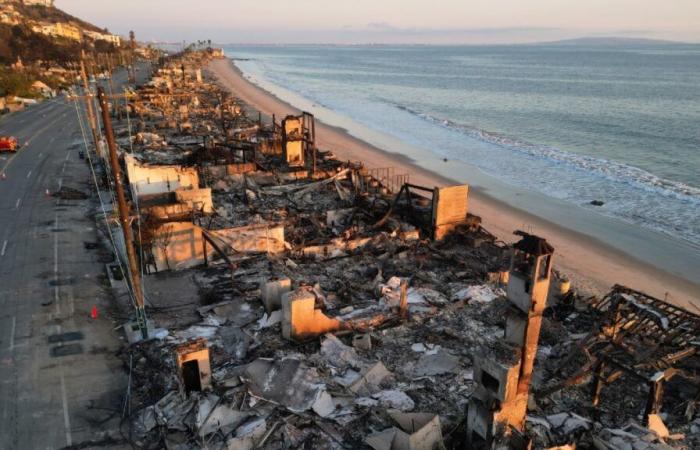In California, no place is spared from the flames. Not even the ocean. Far from the coast, scientists observed “yellow smoke” and ash particles. Remnants of the fires, dissipated as far as the Pacific. The unprecedented situation worries experts.
The discovery was made by Rasmus Swalethorp, an oceanographer for the Scripps Institute of Oceanography. While he and his colleagues were carrying out a routine sampling mission tens of kilometers from the coast, they were confronted by an improbable cloud of smoke. “We were heading towards an apocalyptic sky,” Rasmus Swalethorp told the Washington Post. It was like being outside on a still, snowy winter day, except it wasn’t snowflakes, it was ash particles raining down on us.”
Pollution with unknown consequences
While experts know that harmful risks from wildfires will linger in the ground and air long after the flames are extinguished, they fear those effects may also be true for the state’s waters. “We don’t know the exact effects, because it’s more or less unprecedented. But it is likely that this will have an effect on the organisms that live there,” says Rasmus Swalethorp.
However, studies carried out to date on other cases of large fires show that the influence of flames on marine life is not always necessarily negative. Between 2019 and 2020, 24 million hectares of land burned in eastern Australia, in a disaster commonly known as the “black summer”. Morgane Perron, researcher in biogeochemistry of marine trace elements at the University of Western Brittany, has studied its effects on the Indian Ocean. Result: his team observed a proliferation of phytoplankton, a sign that, during and after the fires, the small algae were feeding and…
-But “the fires in Australia…
Read more on Slate.fr
Belgium






